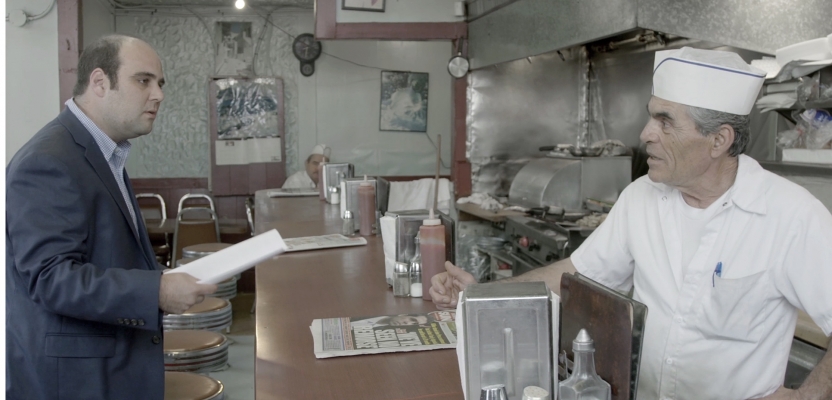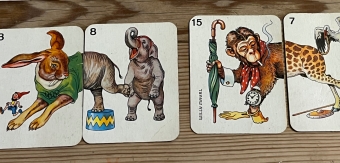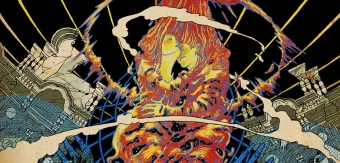Born and "raised" in Toronto, Zulu Alpha Kilo has a pretty beautiful history here on Creativepool. Multi-award winners since 2018, pluri-featured in the community and our #3 Ranked Advertising Agency on the platform, the team at ZAK is relentlessly creative, endlessly inspiring and worthy of unparalleled recognition.
There is perhaps one single, strikingly simple secret to the team's success: they do not accept spec pitches, which are seen in the team as antiquated practice. In fact, we are adamant advocates of that concept; we even talked about it in a recent feature on the problems of pitching.
For this Company Spotlight, we had an inspiring chat with Zak Mroueh, Chief Creative Officer, Chairman and Founder of Zulu Alpha Kilo.
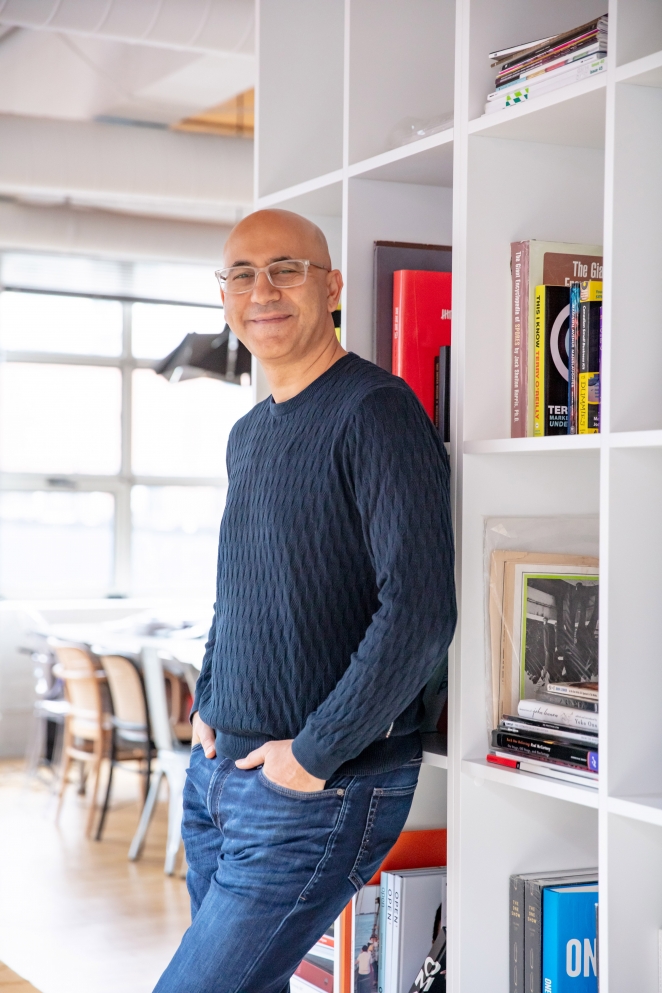
How was your company born and where are you based?
We were born and are based in Toronto. I was a partner and chief creative officer of TAXI Canada. We had enjoyed a lot of success both here and abroad. But by the summer of 2007, after 9 years there, I had grown a bit restless. The entrepreneurial itch had been calling to me for a few years, but something was holding me back. As creative leaders, we spend a lot of energy encouraging clients to take risks, but how many of us have really taken one of our own?
Then one day I happened to open an edition of our national newspaper - The Globe and Mail - and there was an article with a picture of a bald guy that reminded me of myself, with his head in his hands. It was entitled “When the Last Straw Breaks” and was all about when it's time to quit your job and move on to the next chapter. It seemed like too much of a coincidence not to be an epiphany. I finally realized that the thing holding me back all this time was just plain fear.
There was a quote in the article that said, “the fear of quitting is always far worse than the reality.” I literally had goosebumps when I read that. I realized I had to overcome that fear. And that was it. That was what got me over the hump. I had achieved most of my creative goals at TAXI, and now I was ready to take on the next challenge as a creative: starting my own shop.
The very next day I went to the bank, refinanced my mortgage, and quit my job. I credit that article with giving me the courage to finally risk everything and do it. TAXI sold three years after I left, and so I had walked away from my shares and any potential earnout. But I had zero regrets. It was the most pivotal and bravest move of my career at the time. I certainly would have regretted not taking the chance and always wondering what could have been.
What was the biggest challenge to the growth of your company?
That’s easy: saying no to spec pitches. From the beginning I never wanted to participate in what I felt was an antiquated practice. But we didn’t have a formal pitch policy. We did participate in one of the biggest spec pitches in Canada in the summer of 2010. Coke’s entire portfolio of brands were up for review and we were the underdogs and the smallest shop in the mix. We were proud to beat all of Canada’s top agencies for the top prize of the year.
Shortly after, we were invited to what I call the ‘pitch that started it all.’ We were paid a small fee to present spec ideas to a large financial services client. The pitch went extremely well, and after a couple of days we got the call we’d been waiting for. They said, creatively and strategically, you guys hit a major homerun and beat out every other agency selected. We were on the edge of our seat, thinking we were just about to win two of the largest clients in Canada, back-to-back. But then they broke the news. Although our creative scored the highest, they needed an agency with offices in other Canadian markets, not just Toronto. That hadn’t been disclosed during the RFP process as a requirement. After finally coming to the realization that it’s not about the work in the end, I vowed to never participate in a spec pitch again. And we went public with that decision.
It limited our growth because it meant we couldn't take on a lot of the opportunities that came our way. I was advised by a lot of people internally and externally not to do it. People were concerned that it would be impossible to grow the company without following the usual pitch process. But it was probably the best decision we’ve ever made. Yes, we could easily be more than double our current size, but because we've had to be very selective about who we take on, the clients we do have really respect us for it, as does the entire creative industry. It has helped us attract great talent as well. Our existing clients love it because it means were always focused on their business and investing in them versus chasing every client that comes our way.
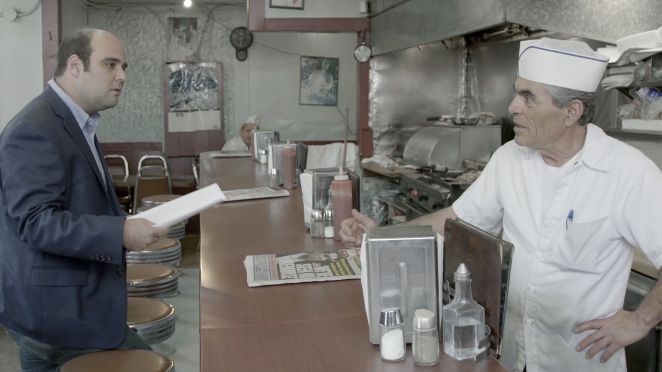
Which was the first huge success that you can remember?
It was a bit scary leaving a comfortable job at the creative helm of a very successful agency. So, I didn’t want to bite off more than I could chew. I wanted to grow slowly. My vision of success was that after a couple of years I’d have a nice little 15-person shop.
But the world had other plans for Zulu. Not long after starting, we landed the biggest telecom in Canada, and everything changed. I was approached by Bell Canada and asked if I’d be interested in rebranding the company. We were given a month to crack it. Suddenly we had to hire, and fast. Within the first month I had 20 people working with me.
We were tasked with creating a design platform that would last for many years without getting stale. It is still in use today, 13 years later.
What’s the biggest opportunity for you and your company in the next year?
As the decade came to an end and right before COVID started, I began thinking a lot about the future and imagined where we would be in 10 years. I met with a former client who I highly respected and asked her to help us craft a plan for the next 10 years and beyond. We called the project Re-engineering Zulu: 2030.
As a company, the business we've always been in is not advertising, design, or digital. Since conquering my fear as an entrepreneur and walking away from my shares in another successful company, Zulu has, de facto, been in the bravery business since day one. It’s always been about partnering with brave clients, hiring brave people, and doing brave work.
That means having a succession plan that attracts the people who can keep the Zulu brand going after we’re gone. It’s about having the right talent, whether it’s here, across Canada, south of the border or abroad. Covid made it clear that location is no obstacle to getting the job done. Expanding into places like New York or other markets in Canada is really about access to talent, not about leasing more office space. So, the biggest opportunity before us is to start to execute that plan.
Can you explain your team’s creative process?
Twenty years ago, I was asked to explain my process, but I didn’t think I had one. I figured it was all about intuition and creative instinct. As I thought deeper about it, I realized there was a method to the madness. I believe there are 5 things you need to make and evaluate great work. In my mind, each one is represented by a letter. First is S for strategy and salesmanship. You need to ask the important questions. What business result are you trying to achieve? Who is your customer? What’s the real problem you are trying to solve for them? How does that reflect your strategy as a business? And the most important ‘s’ of all, does your idea sell the product, notion, or brand value you’re trying to communicate?
The next thing you need is the M for Magic. It’s that intangible creative element in the design, tech or story that leaps out and grabs you, it’s that magic moment or ingredient in the film or digital experience that's going to trigger the right emotional response. It’s what makes an idea ‘sticky’.
A lot of creatives do things for themselves and not for the target. At Zulu we make sure – with no loss of creativity - to appeal to the target consumer. Go ahead and strive for award-winning creative, but make sure it makes sense to your target. Which brings me to the third attribute: A for Appeal. The creators of the work have to put themselves in the shoes of the target using empathy to ensure it appeals to the intended target. We want our work to be loved and embraced by the people we’re trying to reach. Not just Awards juries.
Then there’s C for Clarity. My nickname at TAXI was ‘Professor Zakobvious’. It was a reference to my obsession with making the message crystal clear. Nothing worse than seeing work that you don’t get.
And the final ingredient is K - for killer insight and killer execution. So, Strategy, Magic, Appeal, Clarity, Killer insight and execution add up to: S-M-A-C-K. If you want to smack people over the head and stop them dead in their tracks with your idea, you’ve really got to do all 5 of those things. Sadly, most annoying and intrusive advertising, design or digital experiences just do two or three. We strive for all five, every day.
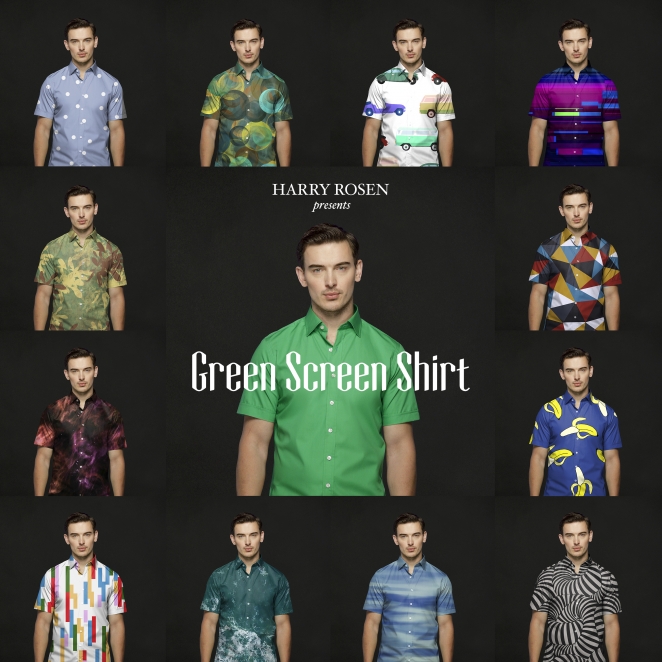
How does your team remain inspired and motivated?
From day one, the goal was to create a legendary agency for staff and clients and a place where people would be inspired to do things differently. We were founded on the belief that the world needs more creativity. We want to put work out into the world that brings a smile, makes you feel something, or helps make the world a better place in some small way. We believe that when clients embrace creativity in their world, they can change their business for the better. That’s our purpose. It’s what motivated me to start this company, and it’s what motivates people to want to work here. People are inspired because every ounce of our DNA, from our pitch philosophy to our parody website to the visual language of the agency environment, is permeated with creativity.
But there’s something that’s just as important. I believe we’ve created an environment where we allow people to dream that anything is possible. For example, one of our team members is Sikh and he and his partner had this great idea a few years ago to develop protective headgear designed for motorcyclists who normally wear a turban. Working with our partners at Pfaff Harley Davidson, who are big champions of diversity, we got it made. It was two years in the making. The recently launched Tough Turban’ campaign promotes a very innovative piece of protective headgear. It’s made of a custom fabric that hardens on impact but allows itself to be folded like cloth, so it looks like a turban. It’s not only a technological marvel, but an expression of cultural freedom and respect for diversity.
The Zuligan who came up with the idea said to me, “I'm here at Zulu because I feel like the agency's behind me and has my back to bring my crazy ideas to life.” I think that’s as good a way as any to illustrate how people are inspired to work here.
How has COVID-19 affected your company?
As aa management team, we are closer together than ever, even though we haven't seen each other physically in so many months. COVID 19 has also pushed us to make some different choices for the long-term health of the company. For example, when we didn't get a lot of help and support from our landlord during the pandemic, we realized we never wanted to be in that situation again. So, we bought our own building.
It forced us to re-evaluate how we re-engineer for 2030 and be where we want to be as a company. We never would have done these things without COVID. It has motivated us to take control of our own destiny. It’s allowed us to be more compassionate, understanding, and transparent as leaders. We’re also more honest about our own vulnerability.
Which agencies do you gain inspiration from? Do you have any heroes in the industry?
There are a few standout agencies for me. One is Droga5. Another is Wieden Kennedy, an inspiring shop who have been consistently great for decades. And during its heyday, Crispin Porter Bogusky definitely was doing some great work.
In advertising, my biggest creative hero was – and is – David Abbott. He was a legendary writer, and I became fascinated with his brilliant copy when I started in this business.
I actually got to meet Abbott in 1994 when I was traveling around Europe. I’d secured an interview with one of his top creatives at Abbott Mead Vickers, the agency Abbott had helped build into one of the most successful ever in Britain.
After going through my portfolio, this senior creative was walking me back to reception, when I saw Abbott’s distinctive white hair in the distance. I asked him if he could introduce me to David and he reluctantly agreed, but sternly instructed me to make it quick. David greeted me with a jovial, “Welcome to London!”
I then blurted out, “Hey David, could you check out my book?” His answer was immediate: “No problem!” The senior guy was seething with an expression that screamed, “How dare you!”
It turned out to be the most memorable 30 minutes of my career. Here was this ad legend and my creative hero being so generous with his time, commenting and giving feedback on each ad in my portfolio. At the end of our time together, he would even put me in touch with a contact of his who would help me get my first job in the UK. Beyond landing a gig, I gleaned something else in that half-hour with Abbott that I’ll never forget -- talented people can be nice as well.

What is one tip that you would give to other agencies looking to grow?
If by growth you mean scale, I’d say don’t do what we do. If by growth you mean attracting the kinds of clients and colleagues who align with your vision, then I’d say remain true to your ethos and you can’t go wrong. Be honest about who you are, wear your heart on your sleeve. Growth for the sake of growth almost always means you’re in it for all the wrong reasons. If that’s why you’re in it, I am the wrong guy to talk to.
In pitches whenever we get to the close, the part where you’re meant to ask for the business, we'd always say, here's why you shouldn't hire us. We’re nice people, but we want to be honest and radically transparent with our clients. We want them to know we won’t be afraid to challenge them. And they love that. For us, that's what wins. And if that doesn’t win, then it wasn’t meant to happen.
How do you go about finding new clients/business? (Pitching, work with retainers, etc.)
Believe it or not, we’ve never had to chase clients. The original website just had a phone number and the URL. The idea at the time was that I would capitalize on my reputation in Canada and clients would reach out. And it worked. Clients did come to us – for example, our first founding client Bell Canada, as we mentioned earlier. But by and large, you could say we've done everything in our power to turn them away by saying no to spec and having a parody website as opposed to the usual self-congratulatory portfolio site. Our site attracts exactly the kind of people we want and filters out the ones we don’t want. It kind of acts as a virtual colander. It reflects a challenger brand mentality and it's not for everybody. It’s certainly not just about chasing growth. It’s about chasing the right kind of growth.

What’s your one big hope for the future of the industry?
Hmm. I think of all the award shows and how they are a necessary kind of evil. Personally, I have a love/hate relationship with them because while it’s nice to get peer recognition, the lust for glory can get in the way of serving real clients. My hope is their currency diminishes and the industry eventually sees through the façade.
I think awards are an important way for us to give our team members – especially the younger ones – a chance to build their own reputations and careers. And, of course, being an award-winning agency is an effective way of attracting great talent. After all, nobody gets up in the morning and says, “I want to work for a mediocre agency!”
It’s just that when we as an industry prioritize awards over solving a real client’s problems, we lose sight of the reason we’re in business in the first place. There’s another downside to putting awards above all else. We’re not just competing with other creative agencies, we’re now competing with management consultants. And they bring a more holistic perspective to a clients’ business. We need to balance what makes us who we are – our commitment to creativity – with business effectiveness.
So if effectively solving real client’s problems wins us awards, then we’ve struck the right balance. But if all we’re doing is chasing trophies, creating fake work, and padding our case studies with fictitious results, then as an industry, we run the risk of watching our clients cross the street to the consultants.
Do you have any websites, books, or resources that you would recommend?
Yeah, one of the books that inspired me was Small Giants by Bo Burlingham. When I quit TAXI, I was in a bookstore one day and spotted the cover. I had no idea what it was about but was really intrigued by the title, so I picked it up and started leafing through it. I bought it and read it within a couple of days, and it really inspired a lot of the ethos of Zulu as a company.
It featured companies that choose greatness over bigness. The whole message was that there's nothing wrong with growth, but when you chase greatness versus growth, you will always do the right thing for your company.
That was a big inspiration for me back in 2007. But the crazy part was that in 2018, I got an email from the author of the book, Bo Burlingham himself. He flew to Toronto for a one-on-one interview and we were recognized as one of the top 25 small companies in North America in the April issue of Forbes magazine. Bo anointed us as a ‘small giant’ like the companies featured in his original book. One month later in May, Bo penned a 1,000-word feature article on Zulu in Forbes Top 100 Innovators issue. I still pinch myself when I think about it. Funny how sometimes life comes around full circle.

